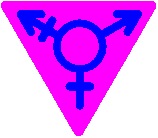
B.C.'s Books: Gender and Transgender Theory
I've recently received a couple of harsh notes from people complaining that I don't have such-and-such book on my booklist. The books on this list are books that I've personally decided to buy, read, and write about. And often, omissions are a reflection of my personal preference for certain types of books.
Sorry, but I don't see any way to change that. I'm not trying to build an exhaustive list of every trannie book in existence (although I'm sure that there's someone on the web that's trying).
My booklist has an emphasis on transgender theory books, although there are TG books of all varieties listed here.
I've also just decided to provide some kind of rating system of the books on this list. These ratings are my opinions, nothing more.
|
| Excellent |
|
| Very Good |
|
| Good |
|
| Average |
|
| Poor |
No rating means that I haven't read (or finished reading) the book yet, and I don't yet have an opinion.
This page has become too big to be easily loaded, so I've reluctantly moved some categories on to a new page.
New!
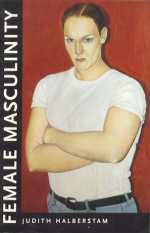
Judith Halberstam. Female Masculinity. Durham: Duke University Press, 1998.
ISBN 0-8223-2243-9
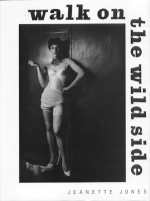
Jeanette Jones. Walk on the Wild Side. New York: Barricade Books, 1995.
ISBN 1-56980-054-5
![]()
![]()
A collection of photographs of trans people of all varieties. The pictures lack some of the life and energy of many of the other books I've seen.
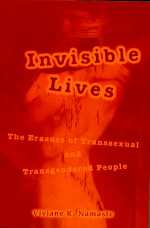
Viviane K. Namaste. Invisible Lives: The Erasure of Transsexual
and Transgendered People. Chicago: The University of Chicago Press, 2000.
ISBN 0-226-56810-5
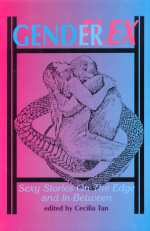
Cecilia Tan (ed). Genderflex: Sexy Stories on the Edge and
In-Between. Cambridge: Circlet Press, Inc, 1996.
ISBN 1-885865-12-0
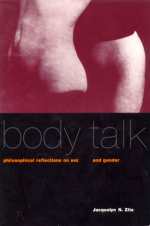
Jacquelyn N. Zita. Body Talk: Philosphical Reflections on Sex
and Gender. New York: Columbia University Press, 1998.
ISBN 0-231-10543-6
Theory and Academia
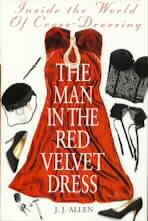
J.J. Allen. The Man in the Red Velvet Dress: Inside the World of Cross-Dressing. New York: Birch Lane Press, 1996.
ISBN 1-55972-338-6
![]()
![]()
![]()
When I first wrote this book list, I commented on J.J. Allen's book, and I think I undervalued it. In retrospect, I think it contains some really well-thought-out moments. J.J. writes for a general audience rather than a gender audience, and I find that his explanations tend to generalize a bit. He also has a really good sense of humour in the book. But I do feel that he tries to speak a bit too definitively and authoritatively for my taste.
I decided to go dressed as my alter ego, Justine Sahnjay. While I had been to other events dressed like a woman, this party would certainly be the most challenging.
"Is that a man in the red velvet dress?" a woman not so discreetly asked her friends as I entered the party. People usually see cross-dressers only on talk-shows; they seldom get to meet the real thing. I soon found myself surrounded by curious people.
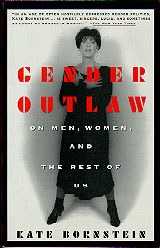
Kate Bornstein. Gender Outlaw: On Men, Women, and the Rest of Us. New York: Vintage Books, 1995.
ISBN 0-679-75701-5
![]()
![]()
![]()
![]()
![]()
Gender Outlaw is an outstanding book about pretending to be one gender or the other, and about Thirdness. It's nice and chatty, and also contains the script to Bornstein's play, Hidden: A Gender, which is, well, a little more verbose than dramatic.
I know I'm not a man -- about that much I'm very clear, and I've come to the conclusion that I'm probably not a woman either, at least not according to a lot of people's rules on this sort of thing. The trouble is, we're living in a world that insists we be one or the other -- a world that doesn't bother to tell us exactly what one or the other is.
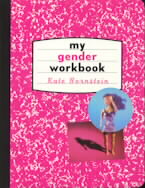
Kate Bornstein. My Gender Workbook. New York: Routledge, 1998.
ISBN 0-415-91673-9
![]()
![]()
![]()
Kate's second major book about gender. Go out and get it, just because it's Kate Bornstein. It's an excellent book, but not quite as excellent as Gender Outlaw.
I saw Kate Bornstein present when she was on her book tour, and she said then that she thought the book was ideally suited for genderqueer youth; I must agree, and I think she's written an excellent book for people who are new to gender euphoria, as well as for mundanely-gendered people. For my part, I think I kinda wanted to see a book that those of 'us' who are well and truly in the TG community could exclusively enjoy, and it's probably not a Bad Thing that I was disappointed.
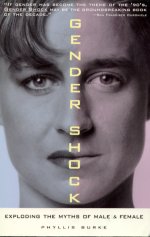
Phyllis Burke. Gender Shock: Exploding the Myths of Male and Female. New York: Doubleday, 1996.
ISBN 0-385-47718-X
![]()
![]()
![]()
![]()
This is a very angry-making book. Before reading this book, I was starting to be wishy-washy about the clinical diagnosis of Gender Identity Disorder (GID), but Burke has documented how the psychiatric community has used the classification to perform horrendous experiments on kids who are suspected of being genderqueer.
In 1995, the Clarke Institute undertook a study of physical attractiveness in girls diagnosed with GID. [...]
Little vignettes were included in the study, the most disturbing of which concerned a four-year-old girl who entered a preschool and was thought to be a boy. "Her [white] teacher was convinced, based on her appearance, that her parents had erred in identifying her on the school registration form as a girl. Because this girl came from a non-Western [East Indian] culture, her teacher was unable to determine her actual sex based on her given name. She was unable to ask the girl about her sex because she did not speak English. The teacher reported that she took this little girl to the washroom and pulled down her blue jeans 'to check'" The researcher stated, "The sequence of events led to the clinical referral." Make no mistake about it: The researchers were not reporting this anecdote in order to expose a neurotically sex-typed teacher who could not endure spending one day in the preschool room with a child whose sex was not clear. The child was the identified patient, not the teacher.
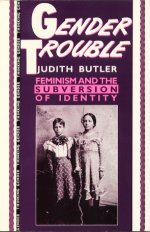
Judith Butler. Gender Trouble: Feminism and the Subversion of Identity. New York: Routlage, 1990.
ISBN 0-415-90043-3
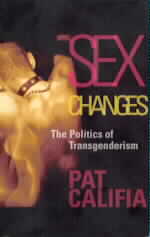
Pat Califia. Sex Changes: The Politics of Transgenderism. San Fransisco: Cleis Press, 1997.
1-57344-072-8
![]()
![]()
![]()
![]()
What can I say, other than "wow!". Pat Califia provides an excellent review of the major moments in the public history of transgendered people.
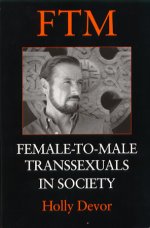
Holly Devor. FTM: Female-to-Male Transsexuals
in Society. Bloomington: Indiana University Press, 1997.
ISBN 0-253-21259-6
An interestingly direct and candid set of interviews with FTMs. This book takes an exceptionally broad look various aspects of FTM lives. It's fascinating for people like me who collect little details about the way certain people view things, although I suspect it might be a bit dry for a non-academic audience.
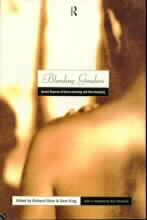
Richard Ekins and David King, eds., Blending Genders: Social Aspects of Cross-dressing and Sex-changing, Routledge, London, 1996.
ISBN 0-415-11552-3
![]()
![]()
![]()
![]()
This collection of essays is remarkable for its variety, if nothing else. The editors put side-by-side essays with conflicting view-points, politics, and goals. My favourite essay is "Gender Fucking or Fucking Gender?" by Stephen Whittle. Also included is an essay by Janice Raymond, who is very critical of TGism.
Congruence is expected both within and between a person's sex and gender. Congruence is also expected between these two areas and a person's sexuality with the 'default' assumption being probably, even in the 1990s, that this will be heterosexual. These are expectations in both cognitive (this is how things are) and normative (this is how things should be) senses.
Any breach of these expectations is therefore a potential threat to this aspect of what constitutes our reality.
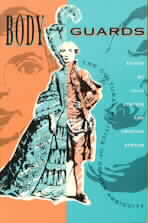
Julia Epstein and Kristina Straub, Body Guards: The Cultural Politics of Gender Ambiguity, Routledge, New York, 1991
ISBN 0-415-90389-0
![]()
![]()
![]()
It's one of the first academic works that I read on the topic of gender. I am still fascinated by the breadth of material. I am, however, only now understanding some of that material. Some of the essays are very dense, but virtually all of them are valuable reading. This book also contains an essay by Marjorie Garber which would later expand into a chapter of Vested Interests.

Leslie Feinberg. Transgender Warriors, Beacon Press, Boston, 1996.
ISBN 0-8070-7940-5
![]()
![]()
The book details the author's attempt to understand TGism and his/her search for TGs in history. It also contains personal anecdotes from the author, and an interesting portrait gallery of current TG personalities.
"Are you a guy or a girl?" I've heard the question all my life. The answer is not so simple, since there are no pronouns in the English language as complex as I am, and I do not want to simplify myself in order to neatly fit one or the other.

Leslie Feinberg. Trans Liberation: Beyond Pink or Blue. Boston: Beacon Press, 1998.
ISBN 0-8070-7950-2
![]()
![]()
![]()
Feinberg's third book tackles questions about Trans politics -- what it means to mobilize, develop allies, and actively try to change the current situation for transfolk.
In general, I like this book, but I have two reservations about it:
- Most of the book is composed of written-forms of speeches that sie has given to various organizations. And although they're good speeches, they do tend to go over the same ground again and again.
- The rest of the book (probably less than 20%) contains pieces written by other people. I have problems with these other essays. The best of them I find them trite; the worst I think are just plain wrong.
But I am happy I bought the book. Mostly because I'm attracted to the idea of a united transgender organization that doesn't squabble over who is "real" and who isn't.
Yet radio and television interviewers still repeat the same questions to me again and again. "But were you born male or female? Why do you think you are the way you are? Were you born this way? Was your mother overbearing? Did your father want a boy?" These questions have no meaning for me.
I don't think the point is: Why are we different? Why have we refused to walk one of two narrow paths, but instead demanded the right to blaze our own? The question is no why we were unwilling to conform even when being beaten to the ground by ridicule and brutality.
The real burning question is: How did we ever find the courage?
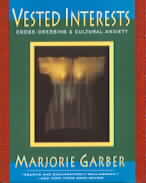
Marjorie Garber, Vested Interests: Cross-Dressing and Cultural Anxiety, HarperPerennial, New York, 1993.
ISBN 0-06-097524-5
![]()
![]()
![]()
Another wonderful book about how TGs make society uncomfortable because they force people to ask what it means to be a man or a woman. A bit more academic than the Bornstein book, and prone to going off on tangents. Full of interesting facts.
The 'third' is that which questions binary thinking and introduces crisis -- a crisis which is symptomatized by both the overestimation and the underestimation of cross-dressing. [...] Three puts in question the idea of one: of identity, self-sufficiency, self-knowledge.

Gilbert Herdt, ed. Third Sex, Third Gender: Beyond Sexual Dimorphism in Culture and History. New York: Zone Books, 1993.
ISBN 0-942299-82-5
Darryl B. Hill, "Deconstructing Gender Dualism through Transgender Photography", BlackFlash Vol 14.3/Fall 1996.
![]()
![]()
![]()

Arthur and Marilouise Kroker. The Last Sex: Feminism and Outlaw Bodies. Montreal: New World Perspectives, 1993.
ISBN 0-920393-37-3
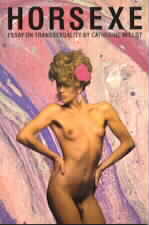
Catherine Millot, (Translation by Kenneth Hylton), Horsexe: Essay on Transsexuality, Autonomedia, New York, 1990.
ISBN 0-936756-20-9
![]()
![]()
Millot raises some interesting points, (and makes some hard accusations of TSs), but it's a bit difficult to wade through the semiotics and Lacanian psychoanalytic theory.
Transsexuality would also seem to play another role, that of reinforcing sexual stereotypes, with a view to maintaining women in the conventional, subordinate role [...] Transsexuals' image of women is wholly conformist, and holds no hope of salvation outside the polar extremes of their sexual identification scale: the star and the housewife.
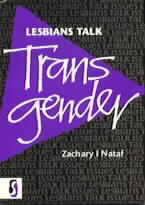
Zachary I Nataf. Lesbians Talk Transgender.
London: Scarlet Press, 1996.
ISBN 1-85727-008-8
![]()
![]()
Nicholson, Linda, "Interpretting Gender", Social Postmodernism, Cambrigde University Press, 1995.
![]()
![]()
![]()
![]()
This is a phenomenal essay that analyses the relationship between sex and gender, and discusses the politics of gender difference.
[S]ociety shapes not only personality and behaviour; it also shapes the way in which the body appears. But if the body is itself always seen through social interpretation, then sex is not something that is separate from gender but is, rather, that which is subsumable under it.
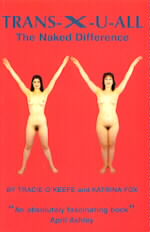
Tracie O'Keefe and Katrina Fox. Trans-X-U-All: The Naked Difference. London: Extraordinary People Press, 1997.
ISBN 0-9529482-0-6
![]()
This book does a mind-numbing job of looking at the spectrum of transgender behaviour and putting everyone into little boxes. I suspect that if the book ever achieves any popularity, it will set back transgender politics by about ten years.
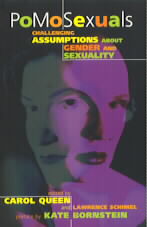
Carol Queen and Lawrence Schimel, eds. PoMoSexuals: Challenging Assumptions about Gender and Sexuality. San Francisco: Cleis Press, 1997.
ISBN 1-57344-074-4
![]()
![]()
![]()
I like this book. About half the essays in it are interesting and worth reading, and the other half are okay. None of it is really annoying; instead, there's just a few essays that I found a little boring. Unfortunately, David Harrison's essay -- the one I bought the book for -- didn't really impress me a whole lot. Riki Anne Wilchins' piece isn't all that great, either (a segment later printed in Read My Lips). The book has a forward by Kate Bornstein.
A friend of mine was in a primarily gay / lesbian / bi / trans / queer / whatever-the-hell-you-want-to-call-it AIDS activism group that got into some very nasty bi wars. When the question of who got to define the word lesbian arose, one of the bi-phobic lesbian separatists came up with this solution: "The lesbians will define who is a lesbian." Now, in a purely semantic sense, this is a meaningless statement, even an absurd one, the sort of thing you might see in a lesbian version of Alice in Wonderland. But the sentence is not, in fact, meaningless. The implied meaning is crystal clear: "Women who do not and will not ever have sex with men will decide whether women who do or might have sex with men may be defined as lesbian." Or to put it another way, "The people who fit the most narrow definition of the word will decide whether or not the definition is to be expanded."
To me, this says a great deal, not only about how this woman defines the word lesbian, but also about how she perceives the community in general. It is a substantial dividing point in the gay / lesbian / bi / trans / queer / whatever community. Is it a public or private club? Does it include anyone who says s/he wants to join (and who pays their dues and brings cookies to the bake sale), or does it only include people who get recommended by current members?
"Loaded Words" by Greta Christina
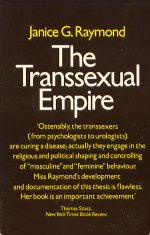
Janice Raymond. The Transsexual Empire. London: The Women's Press, 1980.
ISBN 0 7043 3857 2
![]()
After much searching, I've finally added this book to my collection of transgender books. I'm pleased to report that it was difficult to find a copy. And well it should be: this is a hate-filled, mean-spirited book.
Given its publication date, one might hope that Raymond had since reached some enlightenment. For the record, she hasn't.
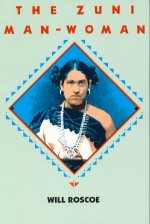
Will Roscoe. The Zuni Man-Woman. Albuquerque:
University of Mexico Press. 1991.
ISBN 0-8263-1370-1
I really enjoyed this book. I had some difficulty dealing with Roscoe's use of male pronouns when describing Whe'wa, but that was one of the issues that Roscoe was wrestling with in the book -- the idea that the Zuni notions of gender and pronouns and sexuality don't translate into our concepts very neatly. There are significant differences between our perception of "transgender" and the Zuni experience that make it a bit of an appropriation to hail Whe'wa as a transgendered "ancestor".

Rike Anne Wilchins. Read My Lips: Sexual Subversion and the End of Gender. Ithaca: Firebrand Books, 1997.
ISBN 1-56341-090-7
![]()
![]()
![]()
![]()
![]()
An incredible book about gender, postmodernism, identity politics and transactivism. Riki Anne Wichins is the founder of Transexual Menace, and in this book, she explains her view of what gender politics are striving to achieve.
17 Things You Don't Say to a Transexual
[...]
Don't #3. "Well, I want you to know that I certainly consider you a woman."
It is a never-ending source of wonderment that well-intentioned, and otherwise very well-brought-up people say this to me, with a light of total sincerity in their eyes for which any self-respecting cocker spaniel would kill.
Unfortunately, this assurance turns on at least four assumptions which, upon closer inspection, prove to be unfounded: (a) my gender is a subject about which reasonable people might be expected to reasonably differ; (b) my gender is a topic that is currently open for discussion; (c) my gender, and your perception of it, is something about which I am seeking some reassurance; and (d) you, since you are a nontransexual, are in just the providential position of providing me with this reassurance I so desperately seek.
Biology, Medicine and Gender

Anne Fausto-Sterling. Myths of Gender: Biological Theories about Women and Men. New York: Basic Books, 1992.
ISBN 0-465-04792-0
![]()
![]()
![]()
![]()
An absolutely fascinating book about how the scientific study of gender difference is replete with bad science. Anne Fausto-Sterling demonstrates time and again how the scientists who design these experiments are unable to see their own bias. Dr. Fausto-Sterling writes from a decidedly feminist position, and the tools she uses to deconstruct these biological theories are scientific, but with an awakened feminist conscience. I cannot recommend this book enough.
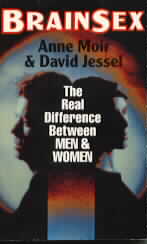
Anne Moir and David Jessel. BrainSex: The Real Difference Between Men and Women, London: Mandarin Paperback, 1989.
ISBN 0-7493-0525-8
![]()
Culled from the pages of the National Enquirer, this book assembles scientific commentary on gender differences. Reading this book is better than getting poked in the eye with a pointed stick.
Other Categories
Transgender Photography, biographies, fiction and miscellaneous books are now located on a separate page.
Copyright © 1996, 1997, 1998, 1999, 2000, 2001
by B.C. Holmes. Last updated March 25th,
2001.
Transgender logo Copyright © by Nancy Reynolds Nangeroni, Ninja Design.
Back to my transgender page or to my reading list.